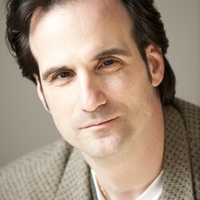
I don’t use this blog to attack other blog posts, but I feel compelled to make an exception in the case of an article written by Aristotle Papanikolaou.
Dr. Papanikolaou is the Archbishop Demetrios Chair in Orthodox Theology and Culture and Co-Director of the Orthodox Christian Studies Center at Fordham University, and the article in question was published on the Public Orthodoxy, under the title ‘Political Nestorianism and the Politics of Theosis.’ It was originally a talk delivered at the June 2015 Fordham/OTSA conference on the (then) upcoming “Great and Holy Council of the Orthodox Church.”
In the article, Dr. Papanikolaou argues that the dualistic logic in Nestorianism, which could not conceive of the union between the fullness of divinity and the fullness of humanity, is also manifested when American Christians see certain political issues as driven by ungodliness or when they believe that surrender on those issues would mean capitulation to the dark side. He apparently believes that “the politics of Chalcedon”, over and against “political Nestorianism”, challenges Christians who oppose marriage revisionism, Christians who oppose having to bake cakes for same-sex weddings, Russians who oppose gay propaganda, Greeks who oppose yoga, and so on. Behind those who take the wrong position on these issues (namely the position contrary to the author’s position) lies the bogeyman of “political Nestorianism.”
The problem is that this framework seems to commit us to affirming a priori that there can be no political issues where compromise really could represent capitulation to the dark side, since acknowledgement that such an issue might exist would involve colluding with Nestorianism. But throughout Christian history there certainly have been issues where the faithful have right understood compromise to be capitulation to the dark side. Could the early Christians have compromised on the issue of infanticide, which was widely practiced in the ancient world? Or emperor worship? What about issues today like human trafficking, abortion, racism and female genital mutilation? On these and many other issues, am I guilty of political Nestorianism as soon as I say “Any capitulation on these issues would mean a defeat for Christianity and a surrender to the dark side”?
Dr. Papanikolaou does make some good points though. For example, he wants to avoid having the public political space absorbed into a certain space that is demarcated as “Orthodox”, but instead urges us to recognize that there are theological principles that can allow for a secular pluralistic order governed on other terms (but which are still ultimately theological since rooted in theosis). This could be laudable if it was developed in a direction that included a strong doctrine of natural law and sphere sovereignty, but it is problematic that he identifies this solution as “secularism”, since secularism technically refers to a public space that is religiously neutral (and which therefore, strictly speaking, cannot even be underpinned by the theological principles driving natural law or sphere sovereignty).


